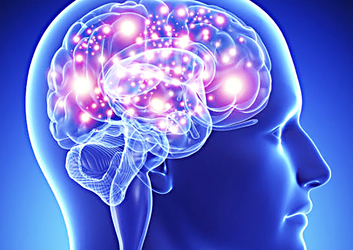By: Marlene Alvarez-Jacinto, B.S. Psych., BA
Antecedent stimuli are the stimuli that occur before the behavior. It can be considered an essential stimulus because it is closely related to the behavior it triggers. The most common antecedent stimulus is a command or request. For example, if someone says ‘sit down,’ then this would be the antecedent stimulus that ultimately triggers the behavior of sitting down. This ensures that the person understands what behaviors are required in certain situations and can act accordingly, demonstrating good communication skills. Commands or requests are not always used as antecedents for behavior; however, sometimes it is more effective to give consequences instead of recommendations such as ‘if you do not stop doing that, I am going to take away your Xbox.’ Another type of antecedent stimulus could be consequences or rewards/punishments because they result in products, so depending on whether sound, harmful effects follow will determine whether the person is likely to repeat the behavior or not.
An example of an antecedent stimulus that would control someone’s behavior at home could be a rule that has been set, such as ‘no eating in the living room’ (Halbur et al., 2021). This would be an antecedent because it happens before the person enters the living room and eats. If they were to eat in the living room, they would be breaking the rule, resulting in the punishment of no dessert for a week. Antecedent stimuli can also be environmental such as the weather. For example, if it is raining outside, people are likely to stay indoors because they don’t want to get wet.
Examples of antecedent stimuli that might control someone’s behavior at work could be things such as: meeting deadlines, turning up on time, and following company rules. These are all things that need to be done to succeed in their job. In addition, many workplaces will have expectations regarding socializing with colleagues. For example, some workplaces may expect employees to go out for drinks after work or have lunch together (Halbur et al., 2021). If someone does not do this, they may be seen as being anti-social and could suffer consequences, such as being passed up for a promotion.
An example of an antecedent stimulus that would control someone’s behavior in social situations could be something such as ‘always have a smile on your face or another person saying they are happy to see them (Bergmann et al., 2021). This happens before any social interaction occurs to demonstrate this behavior. These skills are essential in successful relationships with friends and family because if people don’t smile when they first meet someone, they are likely to think that there is something wrong with them, resulting in not being friends anymore.
This type of antecedent stimulus would occur before someone is likely to start misbehaving or misbehaving, among others. Tyner and Fienup (2016) state an example that if you were about to swear at your boss, then the antecedent stimuli for that behavior would be the anger you are feeling. This is usually preceded by frustration, annoyance, or being overwhelmed.
It is essential to be aware of antecedent stimuli because it can help us understand why we are behaving in a certain way and allows us to change our behavior if necessary. For example, if someone knows that they get angry quickly, they may avoid situations that trigger this anger (Tyner& Fienup, 2016). Alternatively, they may use different coping mechanisms such as deep breathing exercises to help them stay calm in difficult situations. Being aware of antecedent stimuli can also allow us to better communicate with others because we can give commands/requests in an unambiguous way. This will help the person know exactly what is expected of them.
An antecedent stimulus could also be an event likely to trigger the behavior. For example, when someone’s phone rings, they are more likely to answer it (Bergmann et al., 2021). When someone hears their phone ring, they know that usually means an exciting phone call for them, so this will make them want to answer it straight away even if they were busy doing something else before.
Respondents may think about antecedent stimuli significantly when predicting behavior in different situations (Tyner& Fienup, 2016). For example, suppose you wanted to know how people would behave on a typical night out at the pub. In that case, you might talk about alcohol consumption and loud noises being potential antecedent stimuli for certain types of behavior.
Therefore, it is essential to be aware of antecedent stimuli to understand why we behave in a certain way and change our behavior, if necessary. It is also beneficial when communicating with others, as it allows us to give clear commands or requests. Lastly, antecedent stimuli could be helpful when trying to predict someone’s future behavior in a particular situation.
It is also possible to avoid situations that may cause us to become angry. Deep breathing exercises can help us maintain our composure in stressful situations. Likewise, it is easier to communicate with others if you are more aware of what is going on before you say something because you can express your thoughts more clearly. This will help the individual understand precisely what is expected of them. Finally, it is depicted that antecedent stimuli are also an essential aspect of behaviorism and thus should be studied more in-depth.














0 comentarios